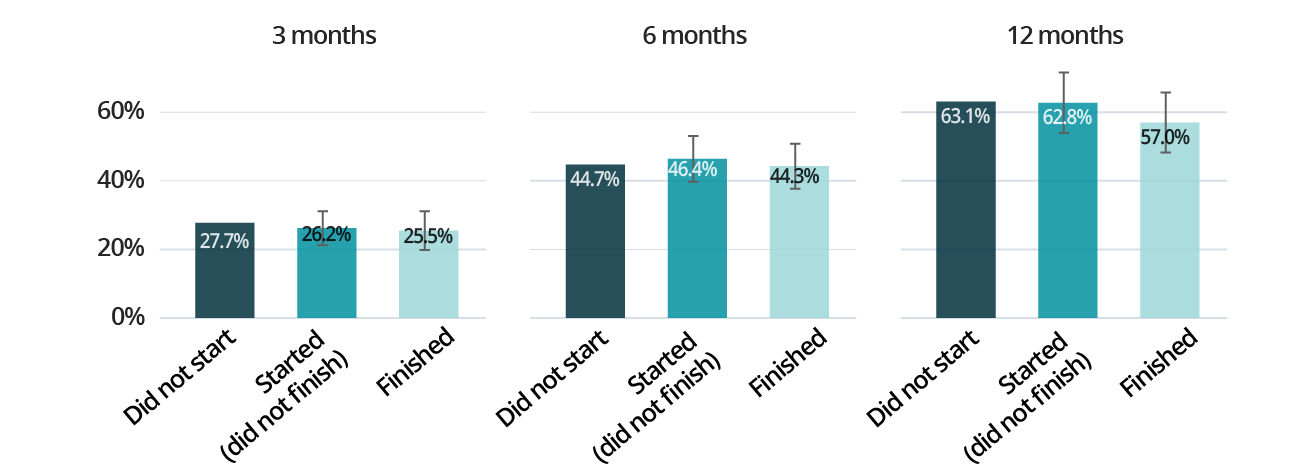Summary
Background
The aim of this study was to assess the impact of participating in a program through a High Intensity Program Unit (HIPU) on reoffending, violent reoffending and reimprisonment within 3, 6 and 12 months of leaving custody.
The HIPUs aim to deliver intensive behaviour change programs, reintegration services and enhanced release planning for people serving short prison sentences. Participants are required to attend two-hour treatment sessions six to eight times per week, over 3-4 months, as part of a behaviour change program. These sessions are delivered in a group setting and are based on existing behaviour change programs, which in turn are based on cognitive behavioural therapy principles.
We estimated the impact of HIPUs on reoffending using three approaches:
- Comparing individuals by program status;
- Comparing individuals by the number of therapeutic hours received at a HIPU, regardless of program status;
- Comparing individuals using variation in therapeutic hours received, restricted to just those who exited due to “insufficient time”.
Key findings
We observed small reductions in our reoffending outcomes between those who finished a program at the HIPU and those who never started, but these differences were very small (generally less than 4 p.p.) and were not statistically significant at conventional thresholds.
We see similar results from our other two analyses (comparing reoffending outcomes obtained by number of therapeutic hours, restricting to those who exited due to insufficient time). Again, we found small differences between groups and little evidence that the HIPUs are effectively reducing reoffending.
Our key concern for this evaluation was the possibility that reductions in post-release rates of reoffending could be due to a less risky cohort receiving the HIPU programs (“selection bias”). We did not find any significant reductions despite the (likely) influence of selection bias increasing the likelihood of observing a decrease in reoffending in our analyses.
Our estimates are limited by the small (absolute) size of the sample and a shortened follow-up period of a maximum of 12 months due to the COVID-19 pandemic and its impact on the offending environment.
Conclusion
Across the three approaches, we did not find any evidence for a reduction in reoffending caused by participation in a program at a HIPU. Continued development and evaluation of programs to reduce reoffending for those serving short sentences is imperative given the potential impact in curtailing offending amongst this high volume, high risk cohort.
